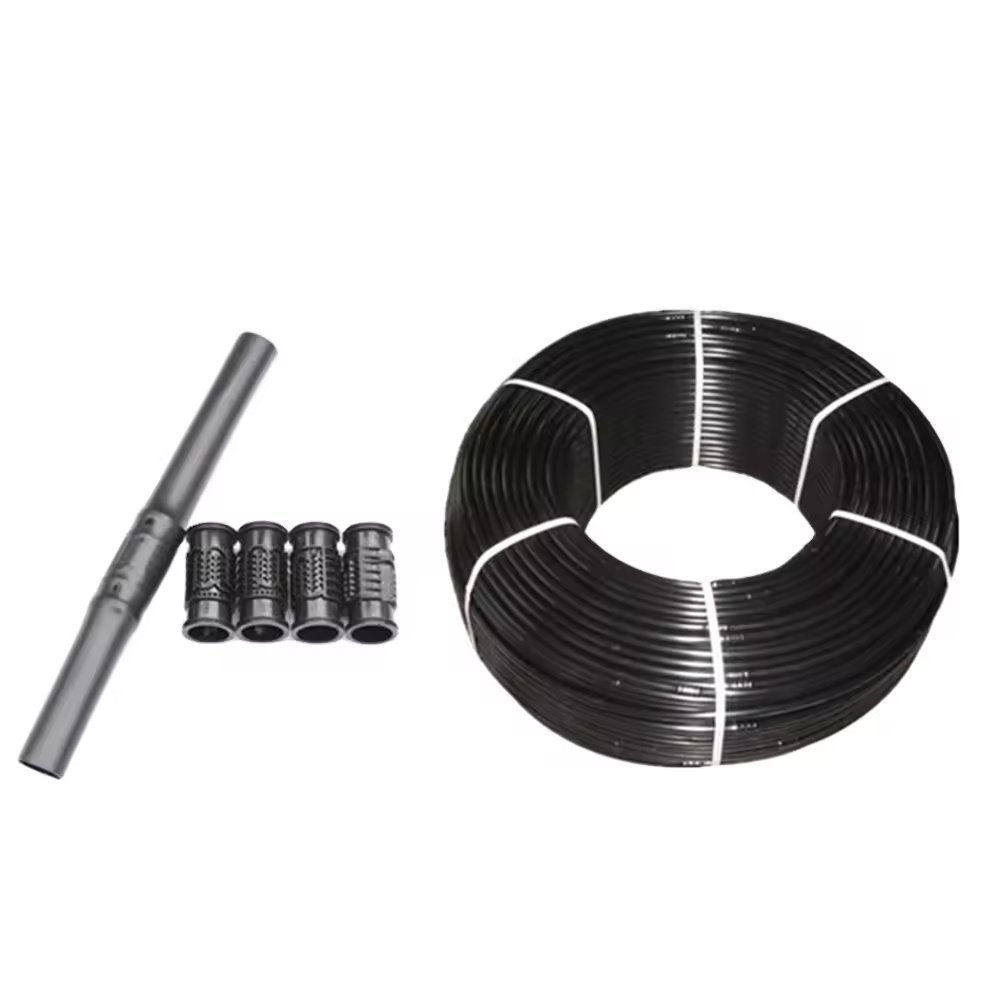

Drip irrigation technology is a revolutionary innovation in modern agricultural irrigation, and drip irrigation pipes serve as the core component of this system. In recent years, with the global shortage of water resources and the advancement of agricultural modernization, drip irrigation pipes have become increasingly prevalent in agricultural production, showcasing their unique advantages.
Drip irrigation pipes are primarily used to deliver water and nutrients directly to the roots of plants. Through precise emitters in the drip irrigation system, water is slowly and evenly released into the soil. This precise irrigation method has several main uses:
Water Conservation: Drip irrigation systems significantly reduce water evaporation and leakage, with water use efficiency reaching over 90%. This is an effective solution for agricultural water use in arid and water-scarce areas.
Precise Fertilization: Drip irrigation pipes can be combined with fertilization systems. Through fertigation, fertilizers are evenly delivered to the plant roots, improving fertilizer use efficiency and reducing environmental pollution.
Improving Crop Growth Environment: Drip irrigation systems maintain soil moisture and aeration, preventing soil compaction, which aids in healthy root growth and promotes increased crop yields.
Adaptability to Various Crops and Terrains: Drip irrigation pipes are suitable for a wide range of crops, including fruit trees, vegetables, and flowers. They can be flexibly applied in plains, hills, and mountainous terrains.
As the core component of drip irrigation systems, drip irrigation pipes have several notable advantages:
High Water Efficiency: Drip irrigation systems allow for precise control of water quantity in each irrigation cycle, significantly reducing water wastage. This makes them an ideal choice for agricultural production in arid and water-scarce regions.
Increased Yield and Quality: Drip irrigation technology better meets the water and nutrient needs of crops, significantly enhancing both yield and quality. For example, fruit orchards using drip irrigation systems see noticeable improvements in fruit weight and sweetness.
Reduced Pest and Disease Incidence: Drip irrigation pipes deliver water directly to plant roots, avoiding prolonged moisture on leaves and fruits. This reduces the occurrence of pests and diseases, and decreases pesticide usage.
Labor Savings: Drip irrigation systems are highly automated, enabling remote control and precise management. This greatly reduces the labor intensity and time costs associated with manual irrigation.
The application of drip irrigation pipes in drip irrigation systems not only effectively enhances water resource utilization efficiency and reduces environmental pollution but also promotes the high yield and quality development of crops. With continuous advancements in agricultural technology and increasingly stringent water resource management, the use of drip irrigation pipes has a promising future. Drip irrigation technology is expected to be more widely applied, providing strong support for the sustainable development of global agriculture.